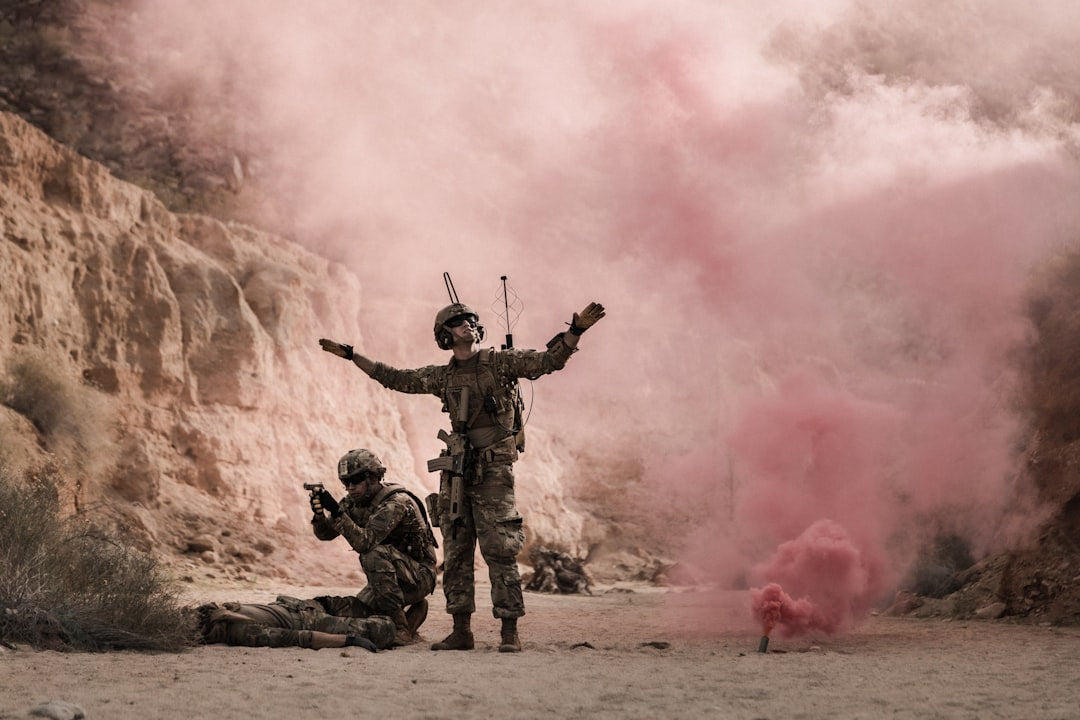
Debunking Common Myths About Military Veterans
Share
When it comes to military veterans, there are often misconceptions and myths that circulate in society. These misconceptions can impact how veterans are perceived and hinder their successful integration into civilian life. In this article, we aim to debunk some common myths about military veterans and shed light on the truth behind these assumptions.
Myth 1: All Military Veterans Have PTSD
One of the most prevalent myths about military veterans is that all of them suffer from Post-Traumatic Stress Disorder (PTSD). While it is true that some veterans experience PTSD, not all of them do. In fact, many veterans return from service without any mental health issues. It is essential to recognize that each veteran's experience is unique, and assuming they all have PTSD is unfair and inaccurate.
Myth 2: Military Veterans Are Always Authoritarian
Another common myth is that military veterans are always authoritarian and rigid in their thinking. This stereotype overlooks the diversity of personalities within the military community. Veterans come from various backgrounds and possess a wide range of beliefs and values. Many veterans are adaptable, open-minded, and collaborative, challenging the misconception of uniform authoritarianism.
Myth 3: Military Veterans Are Uneducated
Contrary to popular belief, military veterans are not universally uneducated. In fact, many veterans have received extensive training and education during their service. The US Army, for example, offers educational opportunities through programs like the 10th Mountain Division, where soldiers can pursue advanced degrees and develop new skills. Such initiatives highlight the commitment to lifelong learning within the military community.
Myth 4: Veterans Are Unable to Adapt to Civilian Life
Transitioning from military to civilian life can indeed present challenges, but the notion that veterans are unable to adapt is a myth. Military service equips individuals with valuable skills such as leadership, teamwork, and resilience. These skills are highly transferable to civilian environments, enabling veterans to succeed in various professions. The Pando Commando initiative, for instance, supports veterans in navigating this transition and thriving in their post-service lives.
Myth 5: All Veterans Have Seen Combat
Many assume that all military veterans have seen combat during their service, but this is far from accurate. While some veterans have been deployed to conflict zones, others have served in support roles away from direct combat. It is important to recognize the spectrum of roles within the military and appreciate the contributions of all veterans, regardless of their specific experiences.
Debunking these Myths Highlights the Diversity and Strength of Military Veterans
Challenging these common myths about military veterans is crucial to fostering a deeper understanding and appreciation for their contributions. By acknowledging the individuality, skills, and experiences of veterans, we can create a more inclusive and supportive environment for them to thrive. Let us debunk these myths and celebrate the diversity and strength of our military community.
Myth 6: Veterans Are Incapable of Emotional Expression
Another myth surrounding military veterans is that they are incapable of emotional expression or vulnerability. This misconception stems from the idea that toughness and emotional suppression are inherent traits in veterans. However, like any other group of individuals, veterans have a wide range of emotions and can express them in healthy ways. Initiatives like the US Army's mental health programs emphasize the importance of emotional well-being and encourage veterans to seek support when needed.
Myth 7: Military Veterans Are Violent or Aggressive
Portraying military veterans as inherently violent or aggressive is another myth that needs to be debunked. While the military trains individuals in combat skills, it also instills discipline, respect, and a strong moral code. These values guide veterans in their behaviors and interactions, emphasizing peaceful resolutions over aggression. By dispelling this myth, we can appreciate the commitment of veterans to uphold peace and security.
Myth 8: Veterans Only Want Special Treatment
There is a misconception that military veterans expect and demand special treatment due to their service. In reality, most veterans do not seek special privileges but rather desire recognition for their sacrifices and contributions. Providing support services and resources that address the unique needs of veterans is not about offering preferential treatment but rather honoring their commitment to serving the country.
Myth 9: Veterans Are a Homogeneous Group
Veterans are often mistakenly viewed as a homogenous group with identical experiences and perspectives. The reality is that veterans come from diverse backgrounds, have varying military roles, and possess individual identities beyond their service. Recognizing this diversity within the veteran community is essential to avoid generalizations and treat each veteran as a unique individual with their own story to share.
Myth 10: Military Veterans Are Pessimistic About the Future
Contrary to the myth that military veterans are pessimistic about the future, many veterans demonstrate resilience, optimism, and a strong sense of purpose post-service. While challenges may arise during the transition to civilian life, veterans often approach these obstacles with determination and a positive mindset. Programs like the 10th Mountain Division's career development initiatives provide veterans with opportunities to pursue fulfilling careers and continue making a difference in their communities.
Empower Veterans by Dispelling Myths and Embracing Truth
As we debunk these common myths about military veterans and shed light on the reality of their experiences, we empower veterans to break free from stereotypes and thrive in their post-service lives. By embracing the truth, celebrating diversity, and offering support, we can create a more inclusive society that honors the sacrifices and contributions of our military heroes. Let's stand united in dispelling myths and building a brighter future for our veterans.
